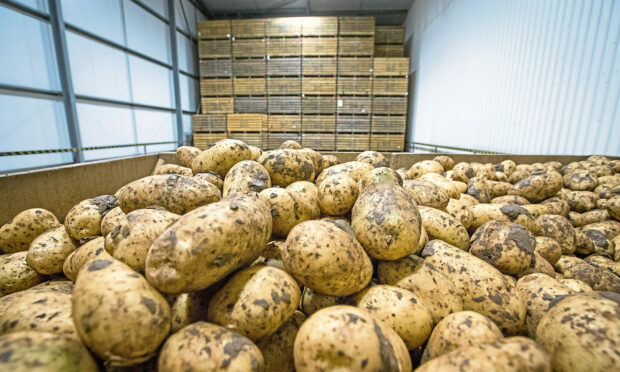NFU Scotland (NFUS) has said that the farming industry may be undermined by the UK Government if it misses out in receiving support towards energy bills for businesses and other non-domestic customers.
The current Energy Bill Relief Scheme comes to an end in March and the Government has announced a new Energy Bills Discount Scheme (EBDS) from April 2023 to April 2024.
High energy businesses, which is likely to include those who manufacture and process food, have been offered support for electricity that amounts to £89 per megawatt hour (MWh) with a price threshold of £185 per MWh.
Those on gas are to be given a relief of £40 per MWh with a price threshold of £99 per MWh.
While the union awaits the publication of further information on the new scheme, it says it is ”deeply concerned” that farming businesses will be classified as non-high energy businesses which could risk production and food security in the future.
If this is the case, relief for electricity would drop to £19.61 per MWh with a price threshold of £302 per MWh and gas relief would fall to £6.97 per MWh with a price threshold of £107 per MWh.
The union said that failure to extend the highest level of support to agricultural businesses would condemn consumers to a further escalation in food prices.
It added that those particularly reliant on electricity to rear livestock and store fresh produce safely, would struggle to absorb the huge hikes in the energy that they face in the year ahead.
NFUS president Martin Kennedy, warned the implications of farmers not receiving support at farm level appose to the processors and manufacturers who would qualify as high energy businesses.
“Having farmers and crofters potentially missing out on the highest level of support with electricity prices beyond March has the potential to further undermine the nation’s ability to produce its own food,” he said.
“Support at processing and manufacturing level for electricity costs is most welcome, but unless you back that up with the same level of support at farm level for production and on farm storage, then providing the raw materials for our processing and manufacturing sectors will further decline.
“The case for including farming at the highest level is robust. Last year, NFU Scotland submitted a response to the UK Government review on business energy support. As we demonstrated throughout the pandemic, agriculture, and the commitment to keep food and drink on the table, was clearly a key part of the Critical National Infrastructure (CNI). The UK Government must choose to fully recognise that.
“Providing that level of support to our sector will keep the nation fed and help to dampen down further food price inflation. We look to the UK Government to clarify that this opportunity to benefit to our hard-pressed consumers has not been missed.”

